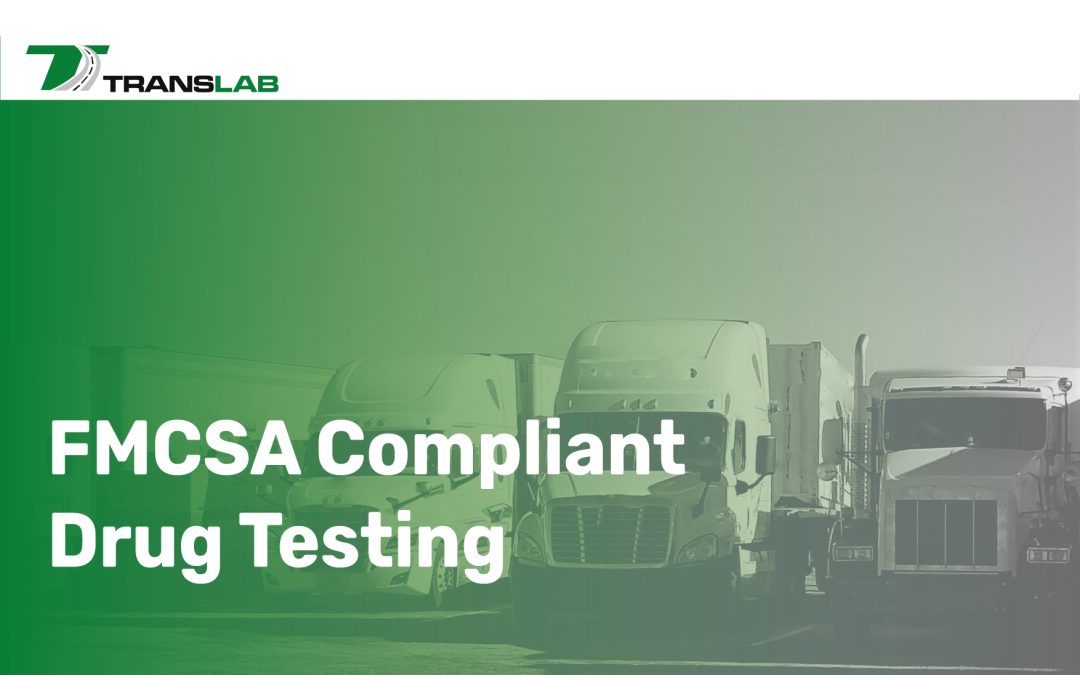Implementing a compliant drug testing program under the Federal Motor Carrier Safety Administration (FMCSA) guidelines is crucial for ensuring the safety and integrity of the transportation industry. Adhering to these regulations not only protects your drivers and fleet but also mitigates legal risks associated with non-compliance. Here’s a comprehensive guide on how to effectively establish a drug testing program that aligns with FMCSA standards.
Understanding the FMCSA Guidelines
Before you can implement a compliant drug testing program, it’s essential to understand the FMCSA’s requirements. These guidelines dictate when and how drug testing must be conducted, who must be tested, and the necessary documentation for compliance. Familiarizing yourself with these regulations lays the foundation for a successful program.
Assessing Challenges and Implementing Solutions
Every transportation company faces unique challenges when conducting drug tests. Factors such as company size, budget, and staff training can impact the effectiveness of your testing program. Identifying potential challenges early can help in crafting tailored solutions that promote compliance and efficiency. Consider consulting with industry experts to address
Preparing for Audits
Regular audits are an integral part of maintaining compliance. Being prepared for an FMCSA drug testing audit requires a thorough understanding of what documentation and processes will be reviewed. Ensure that your program is well-documented and that all personnel involved in drug testing are trained and informed. This proactive approach can significantly ease the audit process.
Recognizing Consequences of Non-Compliance
Failing to comply with FMCSA drug testing rules can result in severe penalties, including fines and loss of operating authority. Understanding the ramifications of non-compliance is crucial for motivating adherence to regulations within your organization. It is also important to ensure all staff members comprehend these potential consequences to reinforce the seriousness of following protocols.
Legal Implications and Substance Abuse Professionals (SAPs)
Navigating the legal landscape surrounding drug testing can be complex. Engaging with Substance Abuse Professionals (SAPs) ensures that you are following legal protocols when handling violations. SAPs provide critical support in assessing and recommending treatment for employees who test positive, thus playing a vital role in maintaining your program’s integrity.
Driver Qualification and Documentation
Incorporating drug testing into your driver qualification files is essential for maintaining comprehensive records. Proper documentation not only aids in compliance but also helps in tracking driver performance and behaviors. Ensure that all drug test results are accurately recorded and maintained in each driver’s qualification file. This aligns with FMCSA requirements and facilitates effective management of your fleet.
Addressing Positive Test Results
Dealing with positive drug and alcohol test results can be challenging for employers. It’s critical to handle such situations with care and in accordance with FMCSA guidelines. Establish a clear protocol for addressing positive results that includes communication with the affected driver and SAP involvement. This approach will help you navigate the complexities of drug testing outcomes.
Efficient Record-Keeping and Reducing Administrative Burden
Maintaining accurate and accessible records is essential for a compliant drug testing program. Implementing efficient record-keeping systems can significantly reduce the administrative burden on your organization. Utilizing technology and software solutions can streamline record management, making it easier to access necessary documentation when required.
Best Practices and Technology Advancements
Staying ahead of advancements in drug testing technology can enhance the efficiency and reliability of your program. Regularly updating your practices based on new technologies and methodologies can improve compliance and reduce the risk of errors. Explore best practices that are currently recommended within the industry to optimize your drug and alcohol testing program.
Continuous Learning and Adaptation
The FMCSA’s drug testing regulations may change over time, so it is crucial to stay informed about updates and adaptations. Regular training for your staff on compliance procedures ensures everyone is equipped to handle new regulations as they arise. This commitment to ongoing education will help your organization remain compliant and reduce potential liabilities.
Implementing a compliant drug testing program under FMCSA guidelines is an ongoing process that requires dedication and vigilance. By understanding the guidelines, addressing challenges, preparing for audits, recognizing legal implications, and staying updated on advancements in the field, your organization can create a robust framework that supports safety and compliance. Fostering a culture of awareness and accountability will not only protect your drivers and fleet but also ensure that your business operates smoothly within the regulatory landscape.


